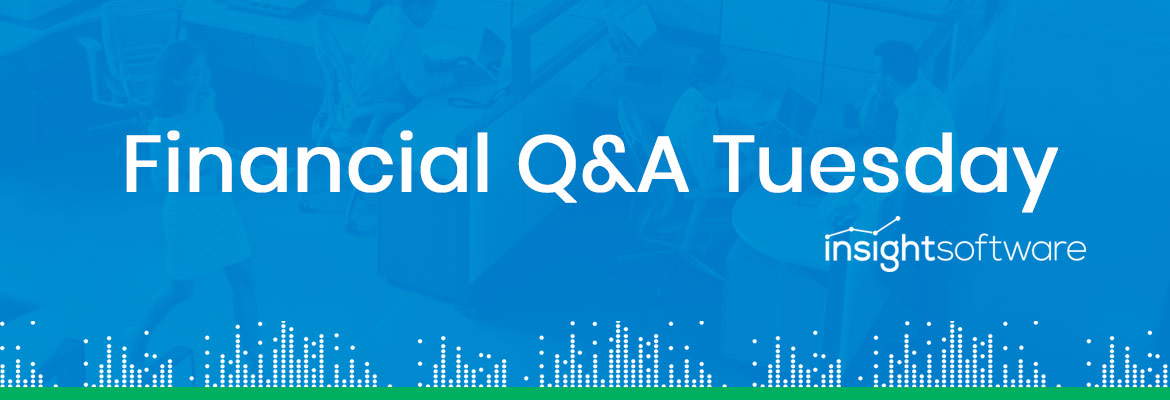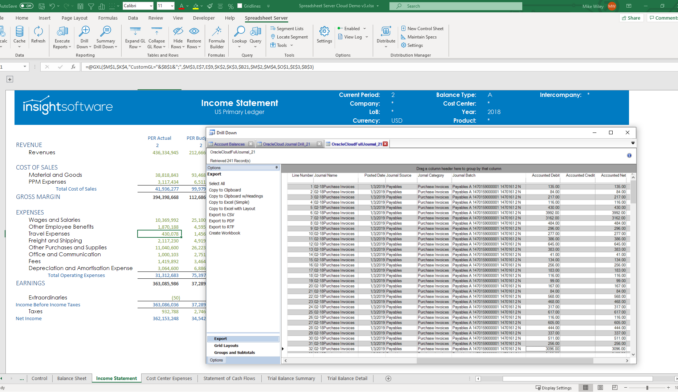Q&A Tuesday: Cari Weston Talks about Adapting to the Changing Face of Accounting

Cari Weston, CPA, CGMA, is the Director of Taxation at the Association of International Certified Public Accountants (AICPA). In her role, she hosts webinars, gives lectures, publishes articles, and provides thought leadership on all subjects related to taxation and modern accounting. In this condensed and edited interview, we spoke with Weston about the changing face of accounting and what it takes to adapt.
As a Director at the AICPA, you have a broad overview of the profession. How have the expectations around accounting and finance changed, and where are these trends headed next?
In my career, I didn’t even learn to use a computer until I was 18, but my three kids have never gone without one. Today’s generation is acclimated to wanting things fast, any time, and digitally. With regard to the profession, there’s an expectation that accountants will be available whenever they’re needed, and that the services they provide will be more technology-driven. The way that customers want to be served is transforming the profession. But it isn’t just in the “technology” sense. People want accountants who will treat them holistically—who can serve as the single point of contact.
As a leader, how do you get your team to accept new technologies and embrace change?
You’re always going to have a holdout. For me, the key is to get behind the “why.” You need to explain why the change matters and be candid about your own concerns. If you walk in with rah-rah attitude, people aren’t going to believe you. So you need to be empathetic. Acknowledge that change is difficult, but emphasize why change is important: it’s going to elevate our service, it’s going to give us real-time data, it’s going to eliminate the jobs that most of don’t want to do anyway. Overall, I think you need to be transparent about everything, positive and negative.
In a corporate setting, is the CFO the agent of change?
It’s funny, we’re going through this at my own organization right now. We are taking a deep dive to explore how we interact with our members and where improvements are possible. It’s led to some changes in our processes and technology, and while our CEO has been at the helm, he has taken input from our entire team. It’s truly collaborative, which I appreciate, but I think at a lot of organizations change comes in the form of directives.
As companies are embracing more technology, how do they distinguish between an impactful product versus a bunch of bells and whistles?
Experience comes into play—learning from past mistakes in software selection. Research, testing, and asking for demos are also important. At the AICPA, we use all these tools to evaluate whether software meets our standards. We focus a lot on data security, we work with a product hands-on, and we ask a lot of questions. And we only move forward when we think a product is perfect, not just adequate.
You also focus extensively on ethics. What ethical issues pertain to today’s accountants, particularly in terms of technology?
My work is largely about guarding tax data. That means complying with standards of the profession as well as national and international regulations around data security. It also means looking beyond cyber attacks, because data security is also about data integrity. Another thing we emphasize is that technology is not a substitute for expertise. It can do a lot of the hard work of taxes, for example, but you still need a tax expert making the final decisions.
Technology creates ethical issues, but could it also help encourage ethical behavior, with automation or access controls?
When I was at Ernst & Young, I was part of the bullpen of junior accountants. One of the rules was you couldn’t access tax returns you weren’t working on. We got a tax return for a famous client, and one of my colleagues decided to read it, not realizing the boss was watching him do it. He was fired on the spot, but only because the boss happened to be in the right place at the right time. Now, with technology, you can monitor who is looking at what and limit access as necessary. You could also use automation to ensure people are meeting regulatory requirements before they complete certain workflows. So I think technology can absolutely be used to encourage ethical behavior.
As a CPA yourself, what do you think it takes to thrive in the profession right now, and how do CPAs need to be adapting?
You used the word adapting which is just right. CPAs need to have a core knowledge, but they can’t have a fixed mindset, because the pace of change is faster than ever right now. So you have to be someone who wants to learn, you have to be eager for knowledge, and you need to have strong technology skills. The other thing I would say is don’t do it alone. Build up a strong network of smart people, young and old alike.
Do you have any final thoughts?
We should all remember that the accounting profession will never go away. Accounting is the language of business. Of my college cohort, I’m the only one still involved with public accounting. Everyone else used their accounting background to excel in other aspects of business. My point is that accounting insights are critical to all aspects of business, and you can never go wrong with honing your accounting expertise.







